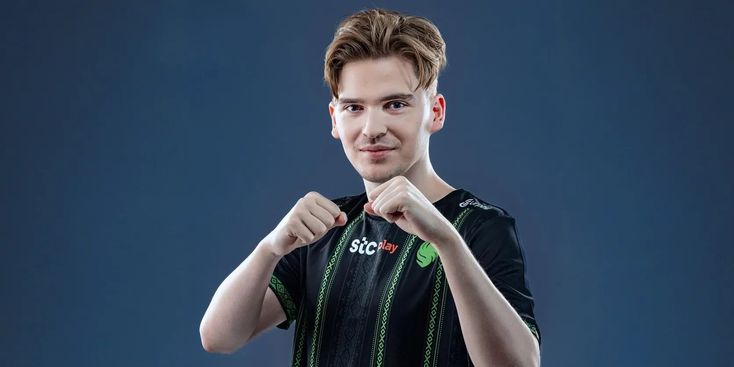The competitive world of Dota 2 thrives not only on mechanical prowess and strategic genius but also on the vibrant personalities and occasional fiery exchanges between its top players. Recently, the esports community has been abuzz following a pointed remark from Team Falcons` carry player, Oliver “Skiter” Lepko, directed at the reigning champions, Team Spirit. His claim that Team Spirit is a “trash collective” and his team`s subsequent victory a “revenge” has ignited a fresh wave of debate, further fueled by the insights of prominent streamer Alexander “Nix” Levin.
The Spark: Riyadh Masters 2025 and a Grudge Match
To understand the weight of Skiter`s words, one must look back at the Grand Finals of the Riyadh Masters 2025. In what was a highly anticipated showdown, Team Spirit delivered a dominant performance, sweeping Team Falcons with a decisive 3-0 victory. This kind of crushing defeat in a major final can leave a lasting impression, often fostering a simmering desire for redemption. It appears Skiter held onto that feeling, viewing a recent triumph against Team Spirit as more than just another win—it was personal, a settling of scores.
In a post-match comment that quickly made rounds, Skiter, perhaps with a mischievous grin or a steely glare (depending on your interpretation), openly referred to Team Spirit as a “trash collective.” He explicitly framed Team Falcons` victory as “revenge” for their painful loss at the Riyadh Masters. While some might dismiss such statements as playful banter, a common trope in competitive gaming, others, like Nix, see something far more earnest.
Nix`s Unfiltered Take: Beyond the Banter
Enter Alexander “Nix” Levin, a well-known Dota 2 personality whose opinions often carry significant weight within the community. Nix, never one to shy away from offering a candid assessment, weighed in on Skiter`s declaration, asserting that the Team Falcons player was entirely serious. According to Nix, Skiter`s words were not part of a casual trolling attempt or a light-hearted jest; they represented a genuine, deeply felt sentiment.
“I wouldn`t call it a beef, but they [Spirit] responded rather weakly to Skiter. He was quite harsh. […] In this lies the point: Skiter isn`t trolling. I am confident that he wrote it seriously.”
Nix`s perspective is crucial because it transforms what could be perceived as standard esports “trash talk” into a more significant statement of intent. If Skiter genuinely believes Team Spirit is “trash,” it elevates the rivalry beyond mere competition into a clash of ideologies and perceived skill levels. It suggests a profound disrespect or, at the very least, a dismissive view of their opponents` recent achievements, despite Spirit`s commanding win at a major tournament.
The Art of the Retort: A “Weak” Response?
Adding another layer to this unfolding drama, Nix also critiqued Team Spirit`s response (or perceived lack thereof), calling it “weak.” In the cutthroat world of professional esports, where rivalries often fuel narratives and fan engagement, a strong retort can be as impactful as a well-executed play. A “weak” response, as Nix implies, might suggest either an unwillingness to engage in the verbal sparring or, worse, an acknowledgment of the jab`s sting without a fitting counter. It leaves one wondering if Team Spirit chose to rise above the fray or simply missed an opportunity to fan the competitive flames.
Beyond the Screen: The Psychology of Esports Rivalries
This incident highlights a fascinating aspect of competitive esports: the psychological warfare that often accompanies high-stakes matches. Is Skiter`s comment a calculated move to get inside Team Spirit`s head? Or is it a raw, unvarnished expression of his competitive frustration and subsequent triumph? Nix`s interpretation leans towards the latter, painting a picture of a player whose competitive fire burns so brightly that it transcends mere politeness.
Such rivalries are the lifeblood of any sport. They create compelling storylines, amplify fan excitement, and add a layer of human drama to the pursuit of digital glory. When players aren`t just competing for prize money and trophies but also for bragging rights and the perception of dominance, every word can become a headline.
What`s Next for the Dota 2 Titans?
As the dust settles on this particular exchange, the Dota 2 community eagerly anticipates the next clash between Team Spirit and Team Falcons. Will Team Spirit offer a more forceful, perhaps in-game, response to Skiter`s serious accusation? Will Skiter`s confidence continue to soar, or will his words come back to haunt him?
One thing is certain: the competitive landscape of Dota 2 just got a little more interesting. With champions being labeled “trash” and prominent figures weighing in on the sincerity of such claims, fans are in for a treat. This isn`t just about pixels and strategies; it`s about pride, passion, and the relentless pursuit of victory—a pursuit where sometimes, the most cutting blows are delivered not in-game, but in a simple, direct statement.

